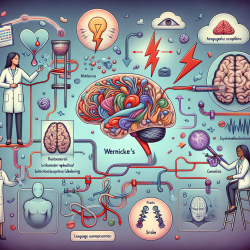Introduction
Huntington’s Disease (HD) is a complex neurodegenerative disorder that requires a comprehensive and multidisciplinary approach to care. A recent international survey, as presented in the research article "Health Care Delivery Practices in Huntington’s Disease Specialty Clinics: An International Survey," provides valuable insights into the organization and delivery of health services in HD clinics worldwide. This blog aims to highlight key findings from the survey and encourage practitioners to enhance their care strategies by integrating these insights into their practice.
The Power of Multidisciplinary Care
The survey reveals that most HD specialty clinics serve large populations and employ a multidisciplinary approach to care. This approach is considered the gold standard in managing complex chronic diseases like HD. Multidisciplinary care teams typically include neurologists, neuropsychologists, research nurses, and geneticists, among others. However, the survey also highlights a notable variability in the presence of other specialists such as physiotherapists, occupational therapists, and speech and language therapists.
Practitioners are encouraged to explore ways to integrate a broader range of specialists into their care teams. This integration can enhance the quality of care provided and improve patient outcomes. Additionally, the use of telemedicine and videoconferencing, as adopted by nearly a quarter of the clinics surveyed, offers an innovative way to extend care beyond the clinic walls and reach patients in remote areas.
Implementing Evidence-Based Practices
One of the significant findings from the survey is that most centers follow published guidelines or local care pathways for HD. This adherence to evidence-based practices ensures that patients receive the most current and effective treatments available. Practitioners should consider reviewing and updating their care protocols regularly to align with the latest research and guidelines.
Moreover, the survey highlights the importance of individualized care management plans. By tailoring care to meet the specific needs of each patient, practitioners can address the unique challenges faced by individuals with HD and their families. This personalized approach is crucial in managing the diverse symptoms and progression of the disease.
Encouraging Further Research
While the survey provides a comprehensive overview of current practices in HD clinics, it also underscores the need for further research into how care delivery models impact patient outcomes. Practitioners are encouraged to participate in or initiate studies that explore the effectiveness of different care strategies and their impact on the quality of life for HD patients.
By contributing to the body of research on HD, practitioners can help identify best practices and innovative approaches that can be shared across the global healthcare community. This collaborative effort is essential in advancing our understanding of HD and improving care for those affected by the disease.
Conclusion
The insights gained from the international survey of HD specialty clinics offer a valuable opportunity for practitioners to enhance their care delivery models. By embracing a multidisciplinary approach, implementing evidence-based practices, and engaging in further research, healthcare providers can significantly improve outcomes for individuals with Huntington’s Disease.
To read the original research paper, please follow this link: Health Care Delivery Practices in Huntington’s Disease Specialty Clinics: An International Survey.










